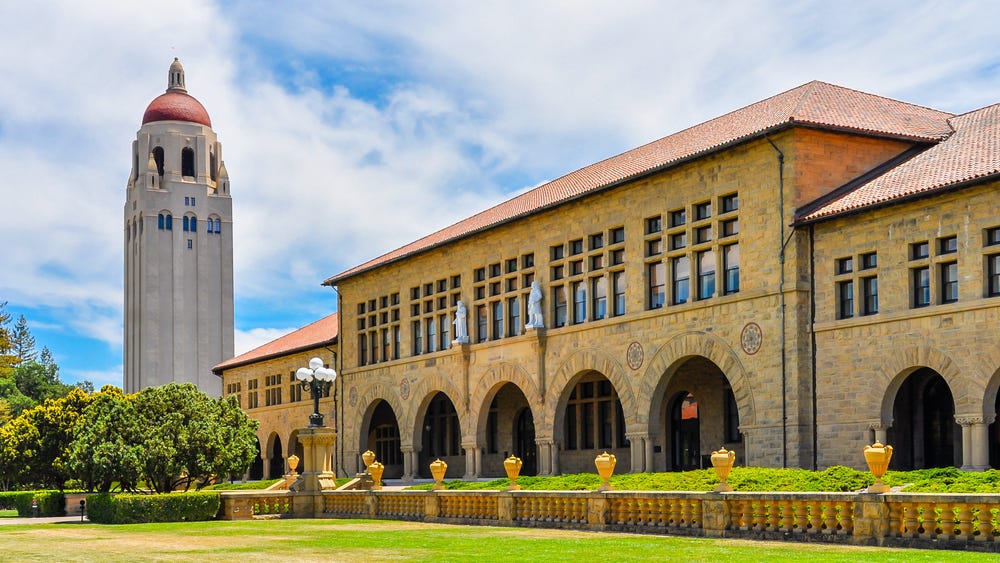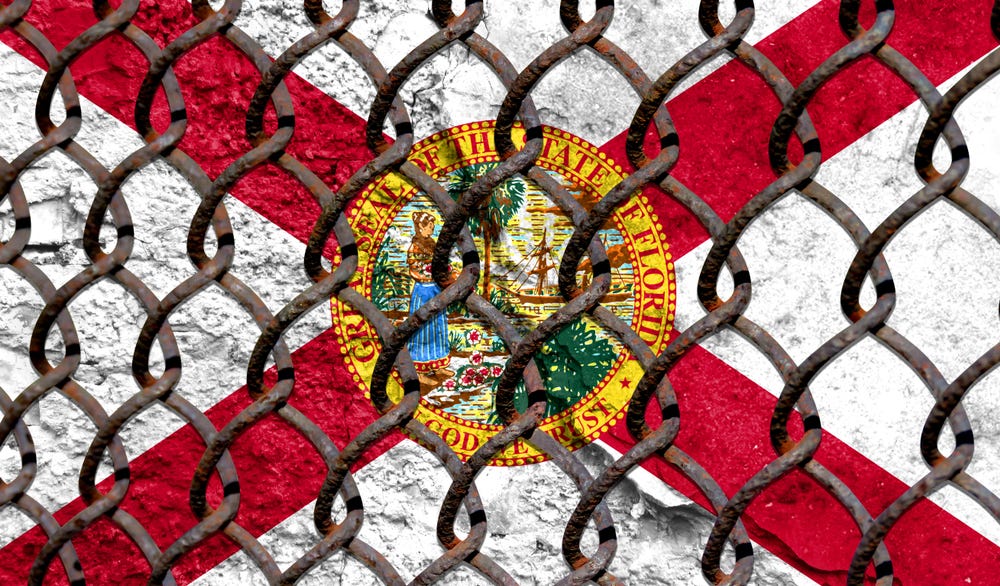E-Pluribus | January 13, 2023
Apologetics for apologies; the Stanford Academic Freedom Conference; and concerns over Ron DeSantis's Florida.
A round-up of the latest and best writing and musings on the rise of illiberalism in the public discourse:
Jessica Grose: Is a Grudging Apology Better Than No Apology?
Most of us recall from our youngest memories being told, “say you’re sorry!” Now that our apologies (as well as our transgressions) are often available for the whole world to see and hear, Jessica Grose at The New York Times evaluates what constitutes an appropriate apology and what goes too far, or not far enough.
In the context of public figures — the P.R. mea culpa, as it were — there are endless examples of famous and semifamous people making not-so-great apologies. Many of them trip up on step 4: They include a lot of excuses and explanations for their behavior that wind up coming off as defensive and not really contrite. A recent example that springs to mind is the kerfuffle involving comments Whoopi Goldberg made about the Holocaust, several months after she was briefly suspended from her job at “The View” for making similarly inaccurate remarks about the Holocaust — a depressingly frequent topic of unconvincing celebrity apologies of late.
[ . . . ]
I support Goldberg’s right to speak her mind, including when I disagree with her and when she’s pretty clearly wrong. Still, I wish she would cut short her comment-apology cycle on this topic, because the exercise makes me question what the point even is. I don’t think she’s done much to further the public’s understanding of the Jewish community’s history, or really helped take the temperature down in our overall discourse — and shouldn’t that be the goal here?
[ . . . ]
And while there are obviously big differences between a celebrity’s complicated relationship with public statements and quotidian disputes among siblings, I think the act of apologizing has some universally applicable qualities. When you apologize, you’re offering vulnerability, opening the door for someone to judge and forgive you — something Goldberg admirably did, but then kind of stepped on with her muddled follow-on thoughts.
Read it all here.
Elizabeth Weiss: A Report From the Stanford Academic Freedom Conference
The Stanford Academic Freedom Conference was controversial even before it began. Elizabeth Weiss at Quillette reports on how things actually turned out and whether it lived up (or down) to either side’s expectations.
Prior to the conference, Inside Higher Ed writer Colleen Flaherty described concerns that this would be a “hermitically sealed event.” And it is true that organizers, presumably fearful that remarks delivered at the conference would lead to the same sort of cancel campaigns being discussed by participants, initially closed the proceedings to the press. Stephanie M. Lee, a writer for Chronicle of Higher Education who’d unsuccessfully asked permission to attend the conference, detailed a letter of complaint signed by over 50 Stanford faculty members, which described the meet-up as an attempt to “protect racist lies and other mistruths.”
To be fair, the conference did include several genuinely controversial figures, such as University of Pennsylvania law Professor Amy Wax, who proudly trumpets the “superiority” of “countries ruled by white Europeans.” Also in attendance was conservative entrepreneur Peter Thiel; and Jordan Peterson, a clinical psychologist and professor emeritus at the University of Toronto, whose Twitter fusillades target all manner of sacred cows.
[ . . . ]
On the other hand, the point of the conference was not about whether attendees and participants agreed with the substance of the speakers’ views, but rather what means could be used to protect academics’ general right to speak and write freely. And notwithstanding the suggestion by Flaherty and others that the conference would comprise a unified choral group singing from the same hymn book, several participants challenged the crowd by declaring that academic freedom wasn’t really in peril.
Read the whole thing.
Alan Elrod: Ron DeSantis and the Closed Society
A lightning rod might well be justified in being jealous of Ron DeSantis’s ability to attract attention. Often seen as the next best hope of the Republican Party after Trump, DeSantis has enormous fans and huge detractors on both sides of the ideological spectrum. Alan Elrod writing at Arc Digital is one of those detractors on the Left and he says he doesn’t want DeSantis to “Florida my country.”
Ron DeSantis has kicked off his second term as governor of Florida, lauding his own policies as representing an uncompromising commitment to liberty. He called his Florida “a citadel of freedom.” But he made these claims while overseeing an administration that has been ruthlessly aggressive in asserting its worldview upon the state of Florida and that has aligned with hard-right interlocutors in its attacks on dissenting and marginalized groups.
DeSantis’s Florida is not a totalitarian state, of course. And we should be measured in how we talk about extreme and authoritarian politics. But Florida is getting noticed for its hardline policies, and more than one expert in strongman politicians has aired their concerns about DeSantis.
[ . . . ]
There is an Orwellian menace to the most aggressive anti-CRT activism. And the DeSantis administration has weaponized its financial oversight powers to scrutinize curriculum and diversity training at public colleges. All state universities have been told to report any spending related to either CRT or diversity, equity, and inclusion policies and activities. This includes a “comprehensive list of all staff, programs, and campus activities related to” the above. One has to wonder what the purpose of obtaining the names of faculty members, staff, and even student groups engaged in activities that Ron DeSantis and his allies in the legislature have called “dangerous and divisive,” “indoctrination,” and “crap.” Rufo himself has said that Critical Race Theory is “being weaponized against the American people.” Lest there be any doubt about how Rufo sees his new appointment, he tweeted out his excitement about the position by writing, “We are retaking higher education.”
[ . . . ]
Are there some programs, some curricula, within the broader umbrella of so-called DEI that are worth canning? Undoubtedly. But DeSantis’s policies target all of it, with no willingness or capacity to discriminate between thoughtful proposals, projects, textbooks, courses, and the unhelpful ones. Moreover, it’s his willingness to use state power and his own bully pulpit to enforce his narrow preferences that is most alarming.
Read it all.
Around Twitter
Excerpts of a disturbing thread from Wesley Yang about the normalization of threatening violence on campus to shut down opposing viewpoints:
The controversy over the Hamline University professor who was let go for showing images of Muhammad in class is causing some division at the Council on American Islamic Relations:
And finally, via Heterodox Academy, it pays to get offline and talk to the other “side”:











